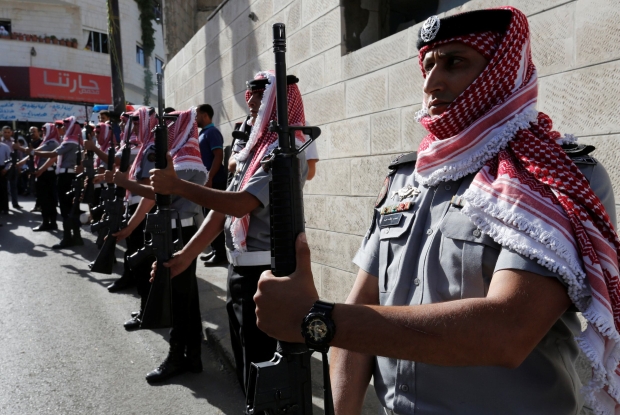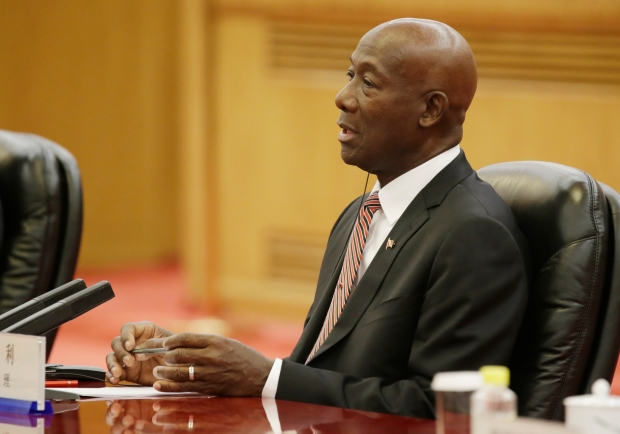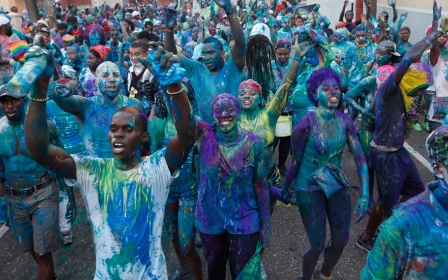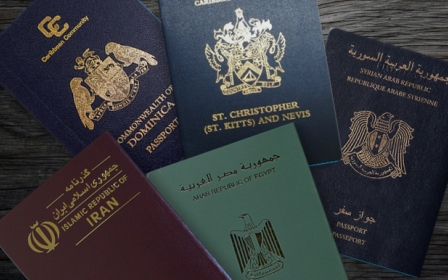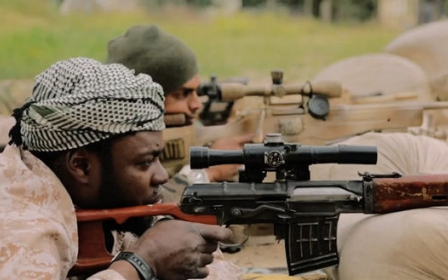Did Jordan use torture to extract 'false' intel on Trinidad Carnival terrorist plot?
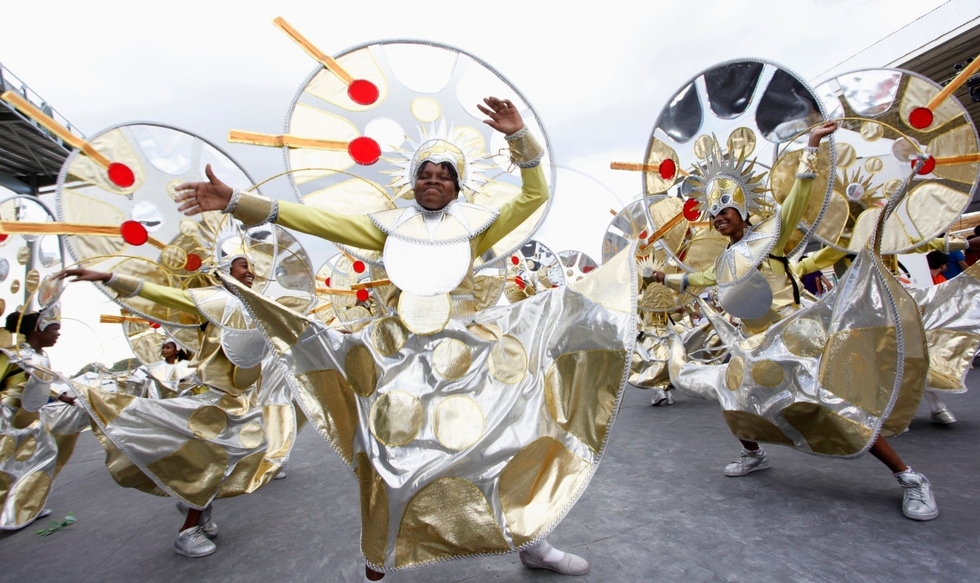
Earlier this month, Trinidad and Tobago passed new anti-terrorism legislation. But the Caribbean nation is still wrestling with the consequences of a police operation that fell apart earlier this year - and the possible involvement of foreign intelligence forces that NGOs have long accused of torture.
In February, at least 13 people were arrested by Trinidadian police over the span of several days, all of them from the country's small Muslim community, which makes up 5 percent of Trinidad and Tobago's 1.2m population.
The Trinidad and Tobago Police Service (TTPS) said the raids were in connection with an alleged terrorist plot to disrupt the country's famous Carnival, which was scheduled for a week later and which brings an estimated 40,000 tourists to Trinidad each year.
But of the 13 detained, 11 were released without charge. The remaining two were jointly charged with possession of a gun-cleaning kit.
The unravelling of the much advertised terror bust led to rebukes of the police and the government.
Opposition leader Kamla Persad-Bissessar called the arrests "a charade," and the prime minister's then-legal adviser, Nafeesa Mohammed, a relative of one of the individuals who was detained, was fired after criticising an "anti-Muslim cabal" in the government.
Trinidad and Tobago Prime Minister Keith Rowley confirmed that information from other countries had been used in the operation, while two US military sources quoted by CNN said that the US had passed on the intelligence which led to the raids.
Later on, however, another country’s name came on to the scene, as local media reported that the intel that had prompted the raids had come from Jordan - where a Trinidadian Muslim couple, Keegan Roopchand and Zaida Mohammed, were detained for months, even after the inconclusive raids took place and despite, their lawyer says, not knowing most of the others who were detained in the Trinidad raid.
The Jordan connection
Roopchand and Zaida Mohammed had travelled to Jordan in January with their seven-year-old daughter and two year-old son. Both were enrolled in university courses - Islamic studies for him and nursing for her.
On 23 January, their plans of studying abruptly came to an end when they were both arrested by Jordanian authorities.
Roopchand was separated from his wife and children and taken into solitary confinement, where he says he was tortured.
"In the small cell I would be exposed to extremely loud sounds and bright lights always on," he told the Trinidad Guardian. "On occasion, I was blindfolded, handcuffed and forcefully dragged by my beard from a vehicle. I was then punched repeatedly and put to face a wall. I thought I was about to be executed."
He said that his interrogators would describe "horrific methods of torture they would execute if we didn't comply. These were described to both my wife and myself and included threats of lengthy imprisonment, [and] burning and maiming our children. My wife was told I'd been hanged for not complying; also that she'd be taken to a location where 'bad things' would happen to her."
Nafeesa Mohammed, the former government legal adviser who was sacked for criticising an anti-Muslim "cabal," is now Roopchand and Zaida Mohammed's lawyer.
She told MEE of the trials the couple told her they underwent in Jordanian custody: "Keegan had no idea where his wife was, and at times they [the interrogators] would quote things that his wife would have said and, he not knowing, went along with them.
"He was fearful about the conditions and what would have happened with his wife and children. He had no idea where they were and there were certain kinds of suggestions. In fact, his wife has said a lot in terms of the things that were said about what would happen to her children and her husband and what they would do to them," she said.
"On one occasion, where they would do the interrogation, they actually took him [Roopchand] upstairs in a different type of room and where they were, he was hearing other people in the next room actually being tortured. A man was being jammed against a wall and, by the sounds of things, it was a case of being pressured.
"So, in other words, if he didn't go along, he might have had to bear the same consequence."
Kareem, a source in Trinidad close to the family who requested not to be referred to by his real name given the sensitive nature of the case, told Middle East Eye that, despite Roopchand's decision to speak out about his own ordeal, the family had intentionally not talked publicly about what Zaida Mohammed and her children went through - as she remains mentally traumatised and they didn't want to jeopardise her recovery.
Roopchand told the Trinidad Guardian that the Jordanians "scripted a plot" which he went along with. Kareem provided further clarification to Middle East Eye on how this alleged scripting worked.
I thought I was about to be executed
- Keegan Roopchand, Trinidadian detained in Jordan
Recollecting his conversations with the Trinidadian on his experience, Kareem said Roopchand felt he was gradually steered by Jordanian interrogators into confessing to a plan.
"It's not as if he [the interrogator] said: 'Hey, there is a plot to do something in Trinidad.' They will have been questioning and leading. There were leading questions and there was no alternative. Every direction you take, the questioning would steer you back to a certain inevitable result," Kareem said.
Kareem added that Roopchand was anxious not to contradict anything his wife might have said and that his captors used her and his children's captivity as a bargaining chip, offering to set them free if he cooperated.
Family suffering
In early April, after around 10 weeks of detention, Zaida Mohammed was reunited with her children, who had spent the time in a Jordanian state-run facility similar to an orphanage where, according to Kareem, discipline was harsh.
Zaida Mohammed and the two children flew back to Trinidad but, while she had returned home, she was not yet free. She was kept first in police custody and then helicoptered to a hospital. Nafeesa Mohammed described Zaida Mohammed at that time as "very dishevelled, depressed and distraught" as she suffered from post-traumatic stress.
"After several days of detention, we had to go to court with an application for habeas corpus writ, which is to secure the freedom of an individual who is detained," Nafeesa Mohammed said.
"Eventually, she was discharged and released into the care of her family. For several weeks thereafter, she still had no idea about her husband and his whereabouts - until one day [Roopchand's] dad got a communication that he needed a ticket to come back home."
Roopchand was reunited with his family in Trinidad by 1 June - over four months after he was first detained. Although Zaida Mohammed claimed she had already given money to the Jordanians for Roopchand's plane ticket home, Nafeesa Mohammed said that the family was made to pay again.
He [Roopchand] was fearful about the conditions and what would have happened with his wife and children
- Nafeesa Mohammed, lawyer
Distant ties in Syria
According to Nafeesa Mohammed, neither Roopchand nor Zaida Mohammed knew most of the people arrested in Trinidad and neither was charged with any offences in either Jordan or Trinidad and Tobago.
Roopchand and Zaida Mohammed's family are thought not to have been the only members of Trinidad's Muslim community to have faced problems. According to Nafeesa Mohammed, another family, which does not want to be named, was also held in Jordan at the same time as the couple.
While the reasons why the Jordanians choose to detain these particular families have not been made public, one possible reason for Roopchand and Zaida Mohammed's detention, according to Nafeesa, is that Zaida had sent money to a fellow Trinidadian Muslim woman whose husband was fighting in Syria – although Zaida said she did not know with whom he was fighting.
"Like many others in society," Nafeesa Mohammed said, "[Roopchand and Zaida Mohammed] know persons who went to Syria, some of whom have been killed and some of whom have survived. There are women and children suffering there, and Keegan's wife had actually sent about US$2,000 to help a sister who had reached out to her for help because she has two infants and her husband was either injured or killed."
According to Joseph Mondello, the US ambassador to Trinidad, 135 people have joined the Islamic State from Trinidad and Tobago - one of the highest per capita recruitment rates in the world. The country's Muslim community is only around 60,000 strong.
Lack of accountability
According to Amnesty International and Human Rights Watch, there have been many incidents of torture and forced confessions in Jordan - particularly conducted by the country's intelligence agency, the General Intelligence Directorate (GID).
While Roopchand has not specified which Jordanian authority held him captive, he has said that officials from the US and Trinidad and Tobago's law enforcement were present during at least one of his interrogations.
Human Rights Watch has documented how the CIA used the GID as its "proxy jailer" after 9/11, and links between the two intelligence services have since remained strong.
Neither Jordan's GID, Trinidadian police nor the Trinidadian prime minister’s office have responded to requests for comment from MEE.
Despite this, the family continues to be treated with suspicion by their own government. At an Eid celebration on 15 June, Prime Minister Keith Rowley refused to apologise to the family, saying: "If such persons have issues with the Jordanian government, I would suggest that they take it up with the Jordanian government who I am sure can speak very eloquently for themselves if they choose to deign them with a comment. To ask me to speak for them is out of the question."
Stuart Young, a minister in the Office of the Attorney General and Legal Affairs, similarly showed little sympathy, telling local press: "It is important to note that that information came from our partners ... international intelligence agencies, both the Jordanians and other allies of Trinidad and Tobago. We find it very interesting."
Young expressed scepticism about Roopchand's recounting of his experience in Jordan, adding that Roopchand had been detained and interviewed when he returned to Trinidad and that an investigation was still ongoing.
If such persons have issues with the Jordanian government, I would suggest that they take it up with the Jordanian government ... To ask me to speak for them is out of the question
- Trinidadian Prime Minister Keith Rowley
"Let us be honest here," he said, "we are now seeing a script being recited by Roopchand and others. It plays no part [in] what is taking place with the ongoing investigations from the part of deterring law enforcement from doing what it has to do.
"What took place at Carnival is very real intelligence," Young added. "In fact, when we were doing the operations, we built it out. We had some things take place very recently ... with some heavy arms and ammunition finds in a certain place. This is part of the real narrative."
Climate of Islamophobia
Young's words were likely referring to an incident in early June, when a team of maintenance workers stumbled upon a cache of guns and ammunition in the ceiling of the ladies' section of the Masjid-ul-Muttaqeen mosque. The workers reported the find to the mosque's administrators, who called in the police. Mosque staff said they had no knowledge of the issue, and condemned the storage of weapons on mosque grounds.
Commenting on this find, Nafeesa Mohammed said: "There are a lot of illegal drugs, guns and ammunition coming into the country and the masjid [mosque] is a very public space. It's a public space where people are free to stop and they go and pray and whatnot. Trinidad has a lot of problems with gun crime and drug dealing and that is where the two things are getting mixed up.
"As a member of the Muslim community, no matter how fundamentalist you are, we are not that kind of people to be excited about mass destruction or destroying people's lives or anything like that," she said.
Relations between this community and the Trinidadian government have been tested further by the passage of new anti-terror legislation approved by President Paula-Mae Weekes on 17 August.
The Anti-Terrorism Act gives the government the power to designate a geographical area as one in which terrorists are active and compel Trinidadians to inform police before travelling there.
Attorney General Faris al-Rawi, whose father is Iraqi, led the push for the new legislation. While some Muslim community leaders have raised concerns that the act will increase Islamophobia, he has claimed that the new legislation will help address discrimination against Muslims and help Trinidad and Tobago's citizens stay off no-fly zones.
As a member of the Muslim community, no matter how fundamentalist you are, we are not that kind of people to be excited about mass destruction or destroying people's lives
- Nafeesa Mohammed, lawyer
He told Muslim community figures during a Parliament session: "One of the reasons for including this particular provision as a policy perspective included addressing the open discrimination of members of the Muslim community."
He said that the new law would enable Trinidad authorities to provide evidence that an individual posed no threat when travelling to other countries: "The intention is to make sure that when a foreign country says, 'Well okay, John Brown can no longer enter my country,' Trinidad and Tobago finally has an opportunity to say, 'Well hold on, we have a record of John Brown. John Brown declared where he went to. John Brown had a reason for going there and you have got the wrong John Brown.' Right now, there is no way to exculpate any of our citizens who find themselves in those scenarios. So this is not only a sword, it is a shield at the same time."
Meanwhile, Kareem said the Roopchand family was just trying to get back to normal. Zaida Mohammed is receiving counselling for her trauma; the children are being re-enrolled in a local school and seem to be coping well despite being separated from their parents for months; and the family is trying to get its finances back together, all while trying to clear their name.
New MEE newsletter: Jerusalem Dispatch
Sign up to get the latest insights and analysis on Israel-Palestine, alongside Turkey Unpacked and other MEE newsletters
Middle East Eye delivers independent and unrivalled coverage and analysis of the Middle East, North Africa and beyond. To learn more about republishing this content and the associated fees, please fill out this form. More about MEE can be found here.


